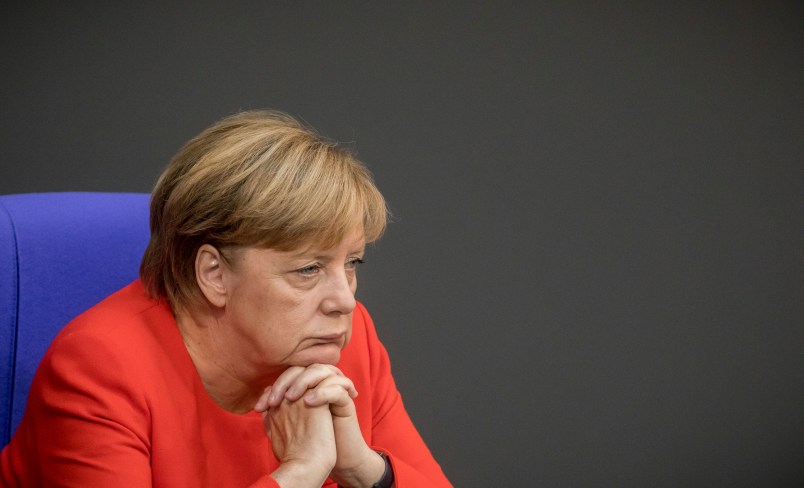The German election, like the earlier election in the United Kingdom, leaves the country without a clear direction or mandate. Most of the post-election stories have highlighted the showing of the Alternative fur Deutschland, the rightwing populist party that by winning 13 percent has become Germany’s third largest party. That’s certainly worrisome, but I’d give equal billing to the revival of the Free Democrats (FDP), which could doom any prospect for economic reform in Europe.
In the last election, the FDP failed to make even the threshold of five percent, which is required for parties to get members in the Bundestag, the German parliament. In this election, it got 10.7 percent, making it the fourth largest party and a likely coalition partner for Angela Merkel’s Christian Democrats and Christian Social Union (CDU/CSU).
The FDP, which was founded in 1948, is West Germany’s free market party. It is anti-tax (it favors a flat tax) and anti-regulation. It favors privatizing the public sector. It has been called “the party of dentists,” dentists being the archetype of the independent entrepreneur. It had fallen into hard times during the last decade, but it gained support as the main opposition to Germany helping Greece with debt relief to remain in the Eurozone. It wanted to kick Greece out of the Eurozone and currently opposes the kind of fiscal reform of the EU that French President Emmanuel Macron and Europe’s Social Democrats favor as a way of reducing the disparity between the prosperous North and the floundering South.
Since 2013, Germany had been governed by a grand coalition of the CDU/CSU and the Social Democrats (SPD), with Merkel as chancellor, but having won only a dismal 20 percent in the election, the SPD has rejected joining another coalition with Merkel. That will probably induce Merkel and the CDU/CSU, who also suffered a drop to 33 percent, to seek a coalition with the FDP and, perhaps, the Greens. The presence of the FDP, along with the weakness of the Social Democratic, Labour, and Socialist parties across Europe, would preclude any move toward reform of the Eurozone. That will pose a political difficulty for France’s Macron, whose campaign rested in part on a promise of working together with Merkel to improve Europe’s economy. But it will also pose a long-term danger to Europe.
If you want the nuts and bolts of why this is problematic, here it is. Much of Europe’s economic woes have rested on the disparity between Germany’s booming economy, with its huge trade surpluses, and Europe’s ailing South of Spain, Portugal, Italy and Greece, with their debts and trade and budget deficits. France, with its high unemployment, has a foot in both camps. Germany’s success has been based partly on the suppression of wage increases that have allowed German business to outcompete its rivals inside Europe. Outside of the Eurozone, Germany has been able to take advantage of a relatively cheap Euro.
Here is the mechanics of the process; if the Eurozone did not exist, the value of Germany’s currency would rise with its surpluses; and the countries of the South would be able to reduce their deficits by devaluing their currencies. But these options are closed under the Euro. Instead, all the countries are being pressured to emulate Germany by suppressing wages and social spending, which is the other half of Macron’s French strategy for reducing its unemployment.
Such a strategy may benefit countries in the short run, but in the long run, it will run afoul of what Keynes called the “paradox of thrift.” As the countries restrain their spending and keep wages down, they will also collectively lower demand for the products their produce. And that could lead back toward the kind of downturn from which Europe and the United States have been extricating themselves. But with the FDP in government, it is doubtful that Germany will alter its own economic strategy or embrace any kind of reform of the Eurozone. Reform will have to await another crisis that will pose the stark choice of reform or breakup. That is why the rise of the FDP is so troubling.






